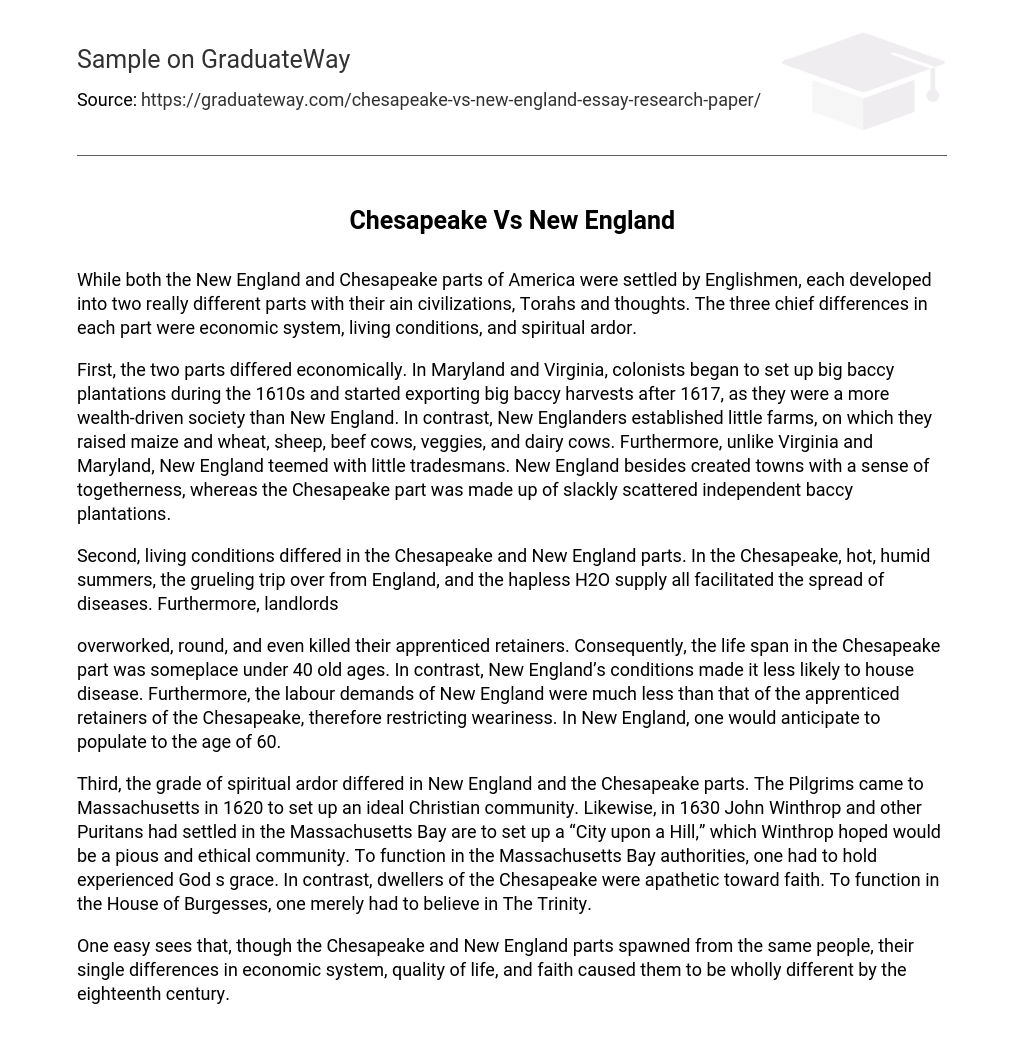While both the New England and Chesapeake parts of America were settled by Englishmen, each developed into two really different parts with their ain civilizations, Torahs and thoughts. The three chief differences in each part were economic system, living conditions, and spiritual ardor.
First, the two parts differed economically. In Maryland and Virginia, colonists began to set up big baccy plantations during the 1610s and started exporting big baccy harvests after 1617, as they were a more wealth-driven society than New England. In contrast, New Englanders established little farms, on which they raised maize and wheat, sheep, beef cows, veggies, and dairy cows. Furthermore, unlike Virginia and Maryland, New England teemed with little tradesmans. New England besides created towns with a sense of togetherness, whereas the Chesapeake part was made up of slackly scattered independent baccy plantations.
Second, living conditions differed in the Chesapeake and New England parts. In the Chesapeake, hot, humid summers, the grueling trip over from England, and the hapless H2O supply all facilitated the spread of diseases. Furthermore, landlords
overworked, round, and even killed their apprenticed retainers. Consequently, the life span in the Chesapeake part was someplace under 40 old ages. In contrast, New England’s conditions made it less likely to house disease. Furthermore, the labour demands of New England were much less than that of the apprenticed retainers of the Chesapeake, therefore restricting weariness. In New England, one would anticipate to populate to the age of 60.
Third, the grade of spiritual ardor differed in New England and the Chesapeake parts. The Pilgrims came to Massachusetts in 1620 to set up an ideal Christian community. Likewise, in 1630 John Winthrop and other Puritans had settled in the Massachusetts Bay are to set up a “City upon a Hill,” which Winthrop hoped would be a pious and ethical community. To function in the Massachusetts Bay authorities, one had to hold experienced God s grace. In contrast, dwellers of the Chesapeake were apathetic toward faith. To function in the House of Burgesses, one merely had to believe in The Trinity.
One easy sees that, though the Chesapeake and New England parts spawned from the same people, their single differences in economic system, quality of life, and faith caused them to be wholly different by the eighteenth century.





